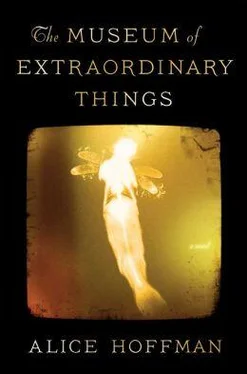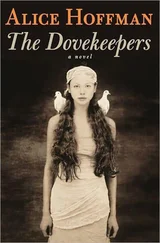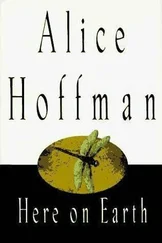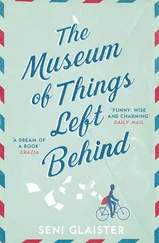She left, tugging the door closed behind her, then quickly turning the locks. The cold had seeped into her blood and her eyes stung with tears. She knew that a monster should not feel anything, not sorrow or regret. She should not weep, or shiver, or sob. To do so would only cause her to give herself away and make herself a target. Better to slink through the dark as she did now. Through the kitchen, down the porch steps, into the yard. In the dark the newly greening leaves appeared black. Out at sea there was a foghorn, for the fog that often arose on spring nights had begun to roll in from the shore, blanketing the neighborhood. It was nearly impossible to see two feet in any direction. Still, Coralie could smell an acrid scent and she spied a flash of red sparks. In the corner of the yard wisps of smoke rose from the trash pile, though it was not trash-burning day. Earlier in the evening, while Coralie was at the shore, the Professor had hurriedly disposed of evidence. But he hadn’t done a thorough enough job. Coralie recognized the blue coat. She grabbed for it, though bright embers burned her fingers. She carried the singed coat to the well in the yard and hurried to work the pump, forcing a stream of water out. The fabric sizzled as the flame was extinguished, with a gasp resembling a human sigh.
Coralie brought her find up to her bedroom. She folded it beneath her featherbed mattress, then lay there with her eyes open, her pulse pounding. She was exactly what she had pretended to be on those nights when she waded into the Hudson, a monster and a monster’s daughter. If the man in the woods could see her now, distraught and lonely, weeping in her bed, he would think she had a heart. But a heart was not enough. She understood that now. What a monster needed most was a plan.
Coralie hurried to the locksmith in the morning, so nervous as she waited she thought she might faint. But in the end luck was with her. Upon returning home, she found her father’s jacket on the hook. She could replace the keys she’d taken before he was aware they’d been gone. She had her own keys now, and a way to unlock her fate.
**********
AFTER ALL these years I could still remember sleeping in the forest in Russia, there beside my father in the grass. Sometimes when I woke I was surprised by my current surroundings, the light of New York City that streamed in through the window, my dog on the floor, the chimes of the tubular church bells ringing in the Chapel of the Good Shepherd from inside the walls of the General Seminary. For a very long time I believed that when we left our home, we left my mother as well. Where our village had stood the burned fields would again become green and her flesh would be in every blade of grass. When we fled we abandoned the past, or so I then believed. My mother was called Anna, a name I still cannot say aloud.
I wept when we ran away from our home, because I was young, and because the forest was dark and I was afraid. There were so many birds in the forest at night, and I imagined they would carry me away. Night birds are predators, and we were easy prey. A man and a boy in black coats and hats, shoes worn, shirts frayed and unwashed, both lost and uncertain of what lay ahead. I held my father’s hand and led him through the trees because my vision was better, my step steadier. When darkness fell, he told me to close my eyes and dream, for in my dreams I would find another world, and in my waking life I would soon enough find such a world as well, far from the forests we knew, far from the fields of grass where my mother bloomed again. My father was a realist, I see that now, and a fatalist as well. He believed we were in the hands of God, and that it was best to accept our fate, and not to battle impossible odds.
I often saw that quality in him when I worked beside him in the factory. He was a good worker and didn’t complain, and I faulted him for that as well. The meeker he appeared to be, the more rebellious I became. I wished to be the opposite of all that he was, and hated every trait of his that I found in myself. He was raised under the rule of the Cossacks, the mad horsemen who burned our village and murdered our people and turned us to smoke. Because of this he had learned to keep himself small, like the mice that ran across the table, catching whatever crumbs they could. The conditions of factory workers in New York were so deplorable even a boy my age could tell this should not be the order of the world, that we should suffer so for the sake of our bosses, who lived in town houses and rode in polished walnut carriages and bought the first automobiles, which they treated like fine horses, caring for them tenderly while the children in their factories worked twelve hours a day for pennies and went to sleep hungry.
Perhaps my father saw a new order when he closed his eyes and dreamed, for in his dreams surely his fingers did not bleed from stitching all day, and his tired eyes were renewed. He went to labor meetings, but he stayed on the fringes, not wishing to cause trouble. A mouse. Nothing more. I was excited by the idea that men could take their fates in their own hands and could choose to strike. “We’ll see,” my father said with caution, and in fact new workers were quickly hired to replace our striking group, brought in one early morning in horse-drawn carts as if they were cattle. We were beaten back with bully clubs by policemen from the Tenth Precinct when we tried to get at the men who had taken our rightful jobs. I remember that my father had a bruise on his face. He didn’t even mention the pain it must have caused him. At home, I noticed he was spitting blood. A tooth had been knocked out, and he tucked a tea bag into his cheek so that the tannic acid would stop the bleeding.
At the next factory where we were employed the entire floor of workers was fired when there was a mild rumble of discontent; the bosses struck before we could, and newer, green men were brought in. That was when my father went to the docks, that patient, good man I had so little respect for, though we were of the same flesh and blood and he had saved my life more than a dozen times when we traveled over continents, finding us bread and shelter. He was a mouse who feared the forest, yet he had managed to take us into France and on to Le Havre, where he worked shoveling coal in a mill until we could afford steerage on a boat to New York, the only dream we ever shared.
In New York, my father allowed strangers to stay with us; anyone from the Ukraine was welcome to sleep on our floor. At shul he gave to the poor, though I couldn’t imagine who could be poorer than we. He was a good man, but what was goodness in a world where men who were slaving in close quarters fell to tuberculosis and were all but worked to death? I looked upon the long-suffering immigrants with contempt. They were sheep to me, creatures who dared not raise their eyes to the bosses, let alone raise their voices.
On the night our village burned, when my father and I lay together in the grass, with owls swooping above us, our stomachs rumbling with hunger, I was not more than five or six. And yet this was when I began to view him as a coward. Side by side we were, a coward and a coward’s son.
How could we leave my mother behind? Whether she was ash, or grass, or air, in my mind she was in our village still. We abandoned her, and began our new life. I was certain that if I ever loved someone, which seemed impossible to me even then, I would never let her go.
I saw a kindred defiance in Mr. Weiss when he came to me. I have often wondered why I agreed to help him, and maybe this defiance was the reason. Weiss was unwilling to allow his daughter to vanish; he refused to consider her lost, a hail of ashes on the city streets. I had become the sort of man who stood on the edge of things, as my father was, but I liked to think it was my insolence that kept me separate, not any sort of timidity. I was a rat perhaps, but never a mouse.
Читать дальше













